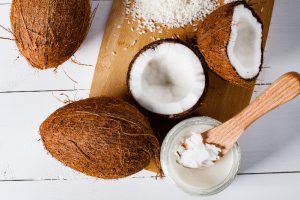When you get together with your friends over coffee, it’s time to brag and it’s time to complain. How many times do you hear people say that they’re tired and achy? How many times do people say that they can’t get a good night of sleep?
These are common things to gripe about, so if you're going through the same thing, you may think it’s normal. You may even feel that it’s a badge of honor in a busy life. That may be. But the way you feel may be your body telling you that you’re suffering from Leaky Gut Syndrome.
What is Leaky Gut Syndrome?
If you haven’t heard of Leaky Gut Syndrome, you’re not alone. A lot of doctors aren’t aware of it.
If you feel bad enough to make an appointment, your doctor might order a bunch of tests. These could include tests for Lyme disease, thyroid dysfunction, and maybe even Mononucleosis. If all of the tests are negative, they’ll tell you to get more sleep and you’ll feel better.

But if it’s Leaky Gut, that’s not going to do the trick.
Leaky Gut is a condition in which the small intestine’s lining is damaged. Bacteria and undigested food leak through and enter the bloodstream. This causes an inflammatory response that can lead to everything from chronic fatigue and food allergies to migraines and rheumatoid arthritis.
The other thing that happens with Leaky Gut is that your damaged intestinal lining can’t digest food properly, so you’re not getting the nutrients you need.
10 Signs You Have Leaky Gut Syndrome
1. Nutritional deficiencies
2. Intestinal problems. These include gas, diarrhea, constipation and bloating
3. Headaches
4. Memory loss
5. Extreme fatigue
6. Vulnerable to infections and viruses
7. Skin problems such as rashes, eczema, acne
8. Arthritis or joint pain
9. Depression or ADD or ADHD
10. Autoimmune diseases like Lupus, Ulcerative Colitis or Crohn’s, and Celiac Disease
What Causes Leaky Gut Syndrome?
There are many things that can cause Leaky Gut Syndrome. Taking some medicines, including over-the-counter pain relievers, antibiotics, or steroids can set it off. These drugs cause inflammation in the mucus layers of the intestines.
Diagnosing Leaky Gut Syndrome starts with testing your diet to find food allergies.
TweetYou need to find the foods that are irritating you and remove them from your diet. The most common problem foods are gluten, dairy, refined sugar, and soy. Some people are also affected by caffeine and alcohol.
 Finding your food triggers will make an almost instant difference in how you feel. So will adding healing foods like coconut and olive oil, avocado, and fish.
Finding your food triggers will make an almost instant difference in how you feel. So will adding healing foods like coconut and olive oil, avocado, and fish.
Probiotics are a big help too. You’ll have much more energy and be in a better mood. You’ll also find that your intestinal symptoms and headaches stop completely.
Identifying Leaky Gut is something you can do on your own, but you’re better off finding a medical professional who is an expert in nutritional issues. They can guide you on your journey to help you find the right foods to heal your gut and feel better.
You Might Also Like:
Best Replacements for Eggs and Other Dairy
Gut Bacteria – the Link to Obesity and Diabetes
Top 5 Home Remedies for Constipation
Yours in health and happiness,
Danette
P.S. Please share with anyone you know who might she experiencing any of these signs! And please share with me in the comments below…do you have more than three of these symptoms?






